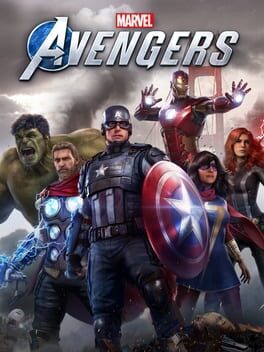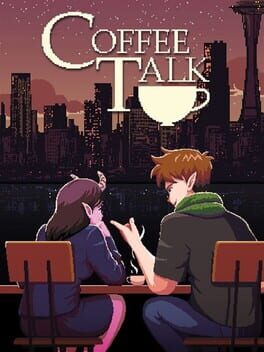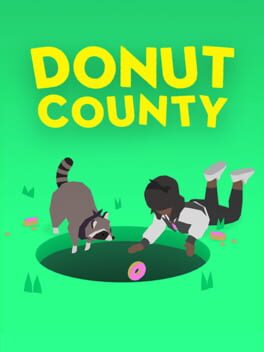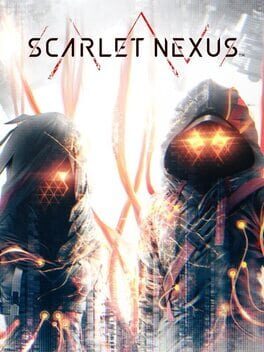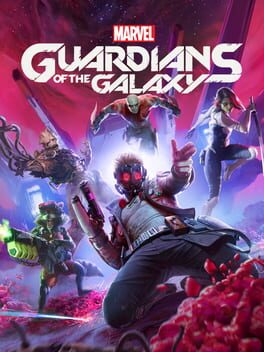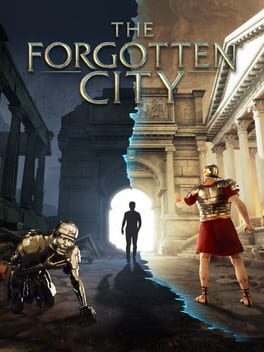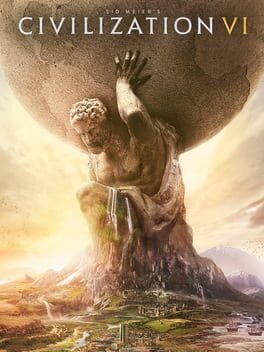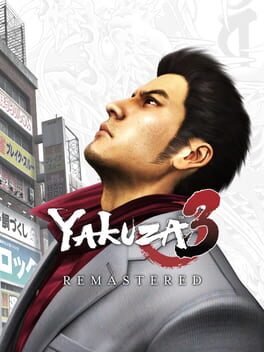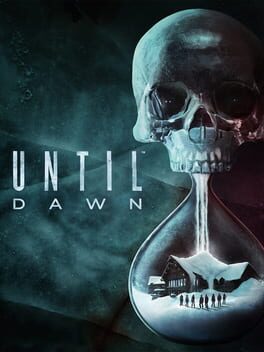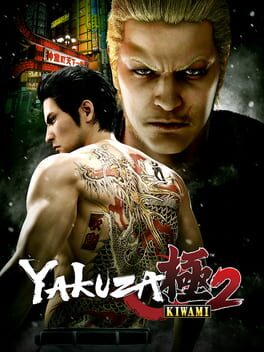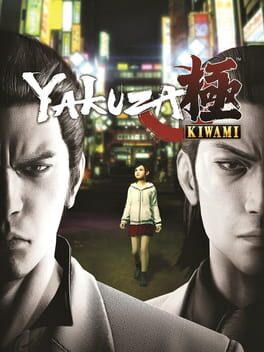2020
Keeping in mind that this whole experience was colored by a $0.99 Playstation Now trial that gave me access to the full game essentially for free during that trial, I have to say Marvel's Avengers is one of the great tragedies in all of video games.
I can't speak to how the expansions have been going, but on paper I don't see how they could be disappointing. All four of the core characters are their own form of fun - Thor gives you some God of War action, Captain America is one of the cooler brawler characters in a long time, Iron Man does a weird kind of Anthem/Uncharted mash-up thing while Hulk is, well, Hulk - and Ms. Marvel is Hulk Too! The variety at the core of Avengers' gameplay is admirable, especially considering there's a 12 hour campaign in which only one of the characters is playable for most of its duration. That's talent!
Also, without any need to go into it because enough people have done this, the campaign is Pretty Good, Actually. That's all.
Unfortunately, it's all the bullshit grafted onto this game that curses it. Which is strange because I know people who've really enjoyed Marvel Ultimate Alliance and Marvel Heroes - in other words, a Marvel heroes game with season pass content, skins, new episodes of story content and whatnot should be a no brainer. Contrary to a lot of popular takes, I think an Avengers that cribs from Destiny and Destiny-likes makes a LOT of sense!
But the way this game does it is just so not the move. For starters, because there needs to be a carrot at the end of the stick, these heroes enter the endgame portion grossly underpowered and underleveled. It renders much of the initial missions a real bog, not unlike the opening hours of an MMORPG where you catch yourself daydreaming of the fireworks and spectacle of the sizzle trailers as you wail away on rats in an arid desert field.
But don't even think about trying to play on a harder difficulty to gain XP faster and get those cool abilities as quick as you want because this game is bizarrely hard for a superhero power fantasy ostensibly intended to reach as broad an audience as possible. Sure, don't hang your 25 year-old über gamers out to dry with Lego-level simplicity, but this is really a game you can imagine a 10 year-old enjoying? No, no, no!
Beyond that, wow, so many currencies and things to ponder at any given moment. I can't even get into that, though that's in no small part due to having played this game three-quarters of a year ago as much as how convoluted it all is. My last gripe is that the game is irrevocably buggy - I counted at least five instances in which I was loaded into a level, which WAS populated with baddies, only it wasn't populated with the specific enemies related to the mission we'd launched. This meant our squad could traverse the bland cityscape or underground bunker in search of flunkies and dunk on them for hours on end if we wanted, only eventually we'd have to force quit the mission and sacrifice all XP and progress because that's, unfortunately, just the way it goes in Marvel land.
Again, there's actually a sneaky fun action brawler in here, especially when it comes to Thor and Captain America. The absolute core of this game flirts with being "fantastic" without any imbued irony - unfortunately, it's rooted in toxic soil and filtering noxious air, dead on arrival due to a confluence of mishaps and misguided ambition.
In a perfect world, Crystal Dynamics would be able to perform the sort of emergency surgery on this game that benefitted previous infamous flops like No Man's Sky, Final Fantasy XIV or Rainbow SIx: Siege, but at this point I just don't see it happening.
I can't speak to how the expansions have been going, but on paper I don't see how they could be disappointing. All four of the core characters are their own form of fun - Thor gives you some God of War action, Captain America is one of the cooler brawler characters in a long time, Iron Man does a weird kind of Anthem/Uncharted mash-up thing while Hulk is, well, Hulk - and Ms. Marvel is Hulk Too! The variety at the core of Avengers' gameplay is admirable, especially considering there's a 12 hour campaign in which only one of the characters is playable for most of its duration. That's talent!
Also, without any need to go into it because enough people have done this, the campaign is Pretty Good, Actually. That's all.
Unfortunately, it's all the bullshit grafted onto this game that curses it. Which is strange because I know people who've really enjoyed Marvel Ultimate Alliance and Marvel Heroes - in other words, a Marvel heroes game with season pass content, skins, new episodes of story content and whatnot should be a no brainer. Contrary to a lot of popular takes, I think an Avengers that cribs from Destiny and Destiny-likes makes a LOT of sense!
But the way this game does it is just so not the move. For starters, because there needs to be a carrot at the end of the stick, these heroes enter the endgame portion grossly underpowered and underleveled. It renders much of the initial missions a real bog, not unlike the opening hours of an MMORPG where you catch yourself daydreaming of the fireworks and spectacle of the sizzle trailers as you wail away on rats in an arid desert field.
But don't even think about trying to play on a harder difficulty to gain XP faster and get those cool abilities as quick as you want because this game is bizarrely hard for a superhero power fantasy ostensibly intended to reach as broad an audience as possible. Sure, don't hang your 25 year-old über gamers out to dry with Lego-level simplicity, but this is really a game you can imagine a 10 year-old enjoying? No, no, no!
Beyond that, wow, so many currencies and things to ponder at any given moment. I can't even get into that, though that's in no small part due to having played this game three-quarters of a year ago as much as how convoluted it all is. My last gripe is that the game is irrevocably buggy - I counted at least five instances in which I was loaded into a level, which WAS populated with baddies, only it wasn't populated with the specific enemies related to the mission we'd launched. This meant our squad could traverse the bland cityscape or underground bunker in search of flunkies and dunk on them for hours on end if we wanted, only eventually we'd have to force quit the mission and sacrifice all XP and progress because that's, unfortunately, just the way it goes in Marvel land.
Again, there's actually a sneaky fun action brawler in here, especially when it comes to Thor and Captain America. The absolute core of this game flirts with being "fantastic" without any imbued irony - unfortunately, it's rooted in toxic soil and filtering noxious air, dead on arrival due to a confluence of mishaps and misguided ambition.
In a perfect world, Crystal Dynamics would be able to perform the sort of emergency surgery on this game that benefitted previous infamous flops like No Man's Sky, Final Fantasy XIV or Rainbow SIx: Siege, but at this point I just don't see it happening.
2020
I had a very good, oh, 30 minutes with this game. The music is bog standard lo-fi chill hip-hop beats to study to muzack, fortunately I grew up buying that shit on CD and vinyl like an absolute geek long before the current era of 24-hour Youtube livestreams so it's always gonna be a bit more than mere background music to me. Likewise, all the coffee shop sounds, from the clanging of the cowbell on the front door to the steaming of milk is intentionally comforting in the best way. For a bit, the game presents itself as a purely nice hang, a low stakes barista simulator.
But then it begins to introduce more characters and plot, only the more diverse and involved the narrative gets the harder it is to overlook how singular the game's voice is. Not in any unique sense - I imagine this is a guy who unironically Naruto runs through animé convention halls and often finds himself unintentionally engaging in performative empathy - but in the generic, as every character can't help but talk in the same passive, hushed tone that implies a deeply insecure society.
The result is a story that, as it becomes more and more navel gazing, increasingly comes across like message board creative fiction propped up by some well-moneyed, overly supportive friends so it can feel more real. That felt mean to write, but as the Coffee Talk becomes more and more about gaming industry labor issues, the façade of this being a story quickly melts away in favor of a half-baked treatise on self-worth and and crunch.
Also: a character's name is "Baileys". This is a criminal act.
But then it begins to introduce more characters and plot, only the more diverse and involved the narrative gets the harder it is to overlook how singular the game's voice is. Not in any unique sense - I imagine this is a guy who unironically Naruto runs through animé convention halls and often finds himself unintentionally engaging in performative empathy - but in the generic, as every character can't help but talk in the same passive, hushed tone that implies a deeply insecure society.
The result is a story that, as it becomes more and more navel gazing, increasingly comes across like message board creative fiction propped up by some well-moneyed, overly supportive friends so it can feel more real. That felt mean to write, but as the Coffee Talk becomes more and more about gaming industry labor issues, the façade of this being a story quickly melts away in favor of a half-baked treatise on self-worth and and crunch.
Also: a character's name is "Baileys". This is a criminal act.
Man, did I feel bad when I realized I just wasn't the demographic for this one. In no small part because I think I very much AM the demographic - I love short stories, I love storytelling, I love many of the contributors (Austin Walker, Cara Ellison, Kellan Jett to name a few) and I love Old West / Depression-era stories.
Unfortunately, I've always had a hang-up when it comes to listening to an actor recite lines that I can already see on screen. I've read the words, why should I wait for you to finish saying them? Likewise, your performance is good, so who am I to cut you off in the interest of time? It's so bad that it often becomes a mini-game in and of itself, me attempting to time the cut-off to what sounds like a reasonable end of a thought, even if it's not the complete line.
And unfortunately that's about all the gameplay there is here. For whatever reason, sensing this, Dim Bulb had the bright idea to make the map a real thing you could traverse, but in declining a road trip mechanic of some kind or anything other than the bare minimum (and somewhat inscrutable) stamina system the player is left to reckon directly with how slow, dull and ugly this part of the game is. It's not meditative or ponderous, it's purely a waste of time.
Random events are strewn across the map to attempt to add any flavor at all to this mess, and these are often the seeds for the stories you'll later tell the main characters, but once you meet these characters you realize they only want to hear certain types of stories, types of stories you haven't yet experienced or don't yet know how to tell the way they'd like you to tell them, it wasn't two hours before I felt unwanted and unappreciated by this game.
I'm glad some people found the avenue to loving this, and I'm deeply sad that the game's economics turned out so poorly for its clearly well-intentioned and well-connected developer, but this game is a spectacle of misfires the likes of which I rarely have the displeasure of experiencing.
Unfortunately, I've always had a hang-up when it comes to listening to an actor recite lines that I can already see on screen. I've read the words, why should I wait for you to finish saying them? Likewise, your performance is good, so who am I to cut you off in the interest of time? It's so bad that it often becomes a mini-game in and of itself, me attempting to time the cut-off to what sounds like a reasonable end of a thought, even if it's not the complete line.
And unfortunately that's about all the gameplay there is here. For whatever reason, sensing this, Dim Bulb had the bright idea to make the map a real thing you could traverse, but in declining a road trip mechanic of some kind or anything other than the bare minimum (and somewhat inscrutable) stamina system the player is left to reckon directly with how slow, dull and ugly this part of the game is. It's not meditative or ponderous, it's purely a waste of time.
Random events are strewn across the map to attempt to add any flavor at all to this mess, and these are often the seeds for the stories you'll later tell the main characters, but once you meet these characters you realize they only want to hear certain types of stories, types of stories you haven't yet experienced or don't yet know how to tell the way they'd like you to tell them, it wasn't two hours before I felt unwanted and unappreciated by this game.
I'm glad some people found the avenue to loving this, and I'm deeply sad that the game's economics turned out so poorly for its clearly well-intentioned and well-connected developer, but this game is a spectacle of misfires the likes of which I rarely have the displeasure of experiencing.
2018
It'd be dumb to say too much about this game and I think raccoon would agree, don't you agree? Like Katamari Damacy, there's a fundamental pleasure to sliding this hole around and watching things drop into it. Some of the puzzles are satisfying, some are a little convoluted, and the "boss fight" strains credibility, but hey! Two hours of treating everyone's possessions like trash with the help of a smarmy, mischievous trash panda isn't the worst time in the world.
Really great music and writing brings the whole thing together, and if you wound up liking this game even more than I did, there's a surprising amount of depth and strategy to the end game. There's some trophies that seem like they'd lead to some real head scratching solutions, but I was happy to leave this game behind as the mindless little curiosity it presents the first go around.
Really great music and writing brings the whole thing together, and if you wound up liking this game even more than I did, there's a surprising amount of depth and strategy to the end game. There's some trophies that seem like they'd lead to some real head scratching solutions, but I was happy to leave this game behind as the mindless little curiosity it presents the first go around.
2021
I waffle between if this is merely a shelved game or something I've fully abandoned. There's a very simple appeal to this game when the combat is fully clicking, though I personally find that feeling fleeting and often left to chance. I also don't think I was all that far away from seeing the end of Kasane's storyline!
But godDAMN did the animé of it all get on my nerves the deeper into the story I got. Character motivations are absolutely bewildering, to the point it's completely senseless to try and care about any of these characters. Perhaps a less, uh, faithful (?) translation could have helped make this stuff more palatable, but as it stands the dialogue is pretty putrid, often amounting to little more than tepid high school hallway flirtation during the literal end of days.
Which is a real shame because, in a year full of some really fun surprises and story beats, nothing caught my eye and sparked my imagination more than an early beat around the end of Chapter 3, in which a seemingly major character undergoes a horrifying metamorphosis into something, well, Other. Not only was it genuinely shocking in a game that otherwise deploys tropes like railgun fire, the design of the character smashed Nier: Automata's tech-horror into Bloodborne's body-horror so violently that the visage still looms large in my memory to this day. It's incredible!
Unfortunately, from there I couldn't help but slowly, by one thousand cuts, wish I was doing literally anything other than playing Scarlet Nexus. The previous year I'd wound up spending a lot of time with Japanese-made or Japanese-language video games, a first since the RPG boom of the SNES and PS1 era, so when critics began to line up behind this one as an interesting game of the year possibility this summer I thought, sure, I'm game!
But nah, man. This game was ultimately just one tiny disappointment after another. On second thought - yeah, this is definitely dropped for good.
But godDAMN did the animé of it all get on my nerves the deeper into the story I got. Character motivations are absolutely bewildering, to the point it's completely senseless to try and care about any of these characters. Perhaps a less, uh, faithful (?) translation could have helped make this stuff more palatable, but as it stands the dialogue is pretty putrid, often amounting to little more than tepid high school hallway flirtation during the literal end of days.
Which is a real shame because, in a year full of some really fun surprises and story beats, nothing caught my eye and sparked my imagination more than an early beat around the end of Chapter 3, in which a seemingly major character undergoes a horrifying metamorphosis into something, well, Other. Not only was it genuinely shocking in a game that otherwise deploys tropes like railgun fire, the design of the character smashed Nier: Automata's tech-horror into Bloodborne's body-horror so violently that the visage still looms large in my memory to this day. It's incredible!
Unfortunately, from there I couldn't help but slowly, by one thousand cuts, wish I was doing literally anything other than playing Scarlet Nexus. The previous year I'd wound up spending a lot of time with Japanese-made or Japanese-language video games, a first since the RPG boom of the SNES and PS1 era, so when critics began to line up behind this one as an interesting game of the year possibility this summer I thought, sure, I'm game!
But nah, man. This game was ultimately just one tiny disappointment after another. On second thought - yeah, this is definitely dropped for good.
EIGHTH FAVORITE GAME OF 2021
I'm of two minds about this game. On the one hand, it's just nice to have a game with such huge IP backing it aspire to nothing more than a thoughtful single player campaign. On the other, it sure would be nice if Guardians of the Galaxy weren't such a tease in damn near every aspect.
When it makes a big deal about dialogue choices affecting story outcomes, you kinda wish they'd solve the Telltale problem and use Square-Enix's money to truly mean it. When it establishes a rudimentary financial system, you kinda wish it was more than a decision to experience everything Knowhere has to offer or not, for fear of a reprimand that isn't coming.
When it introduces stagger and damage systems, as well as support character abilities leaning one way or the other, you kinda wish combat didn't just devolve into "use whatever we've got, guys!" almost every time. When you realize this is going to be a somewhat emotional story about Star-Lord's acceptance of adulthood and leadership, you kinda wish his damn guns weren't the (hand waved, I might add) deus ex machina that gets the Guardians out of every life or death pickle.
When you start to realize you actually really enjoy this iteration of Drax the Destroyer, you kinda wish this iteration of Star-Lord didn't sound like the sort of dude that thinks Poochie is actually kind of cool. When you realize just how much unique and situational dialogue they've written for this team is, you simultaneously begin to wish they'd just shut the hell up sometimes - and bizarrely, so does the game which is often not designed with the length of this incidental dialogue in mind, more often than not cutting things off mid-sentence as you progress from one room to another.
In other words, and this is even without addressing all the ways this game hints at simply better games (most specifically Uncharted and Mass Effect) to the very lightest degree it possibly can, Guardians of the Galaxy is the epitome of a They Just Don't Make 'Em Like THey Used To licensed game, an amalgamation of all that's hot in gaming with few original ideas and even fewer ideas of how to implement those trends into itself.
And yet...this is not a bad thing, publishers! This is all we basement dwelling dweebs want! Give us our IP, wrap it in a packaging that plays about as well and looks about as good as the very best this industry has to offer, hint at the ambition the development team could apply to an original idea if they ever got the chance and let us be on our merry way after 15 or 20 hours.
Guardians got a bit of a bad shake during its PR skid, partially due to ongoing Marvel fatigue and partially due to audiences seeming to feel brow beaten by multiple extended gameplay reveals. It's a shame because I think we all should have taken the opposite approach and appreciated that Square were putting so much faith and marketing heft behind this thoroughly above average, thoroughly non-predatory bit of mass market entertainment.
I'm of two minds about this game. On the one hand, it's just nice to have a game with such huge IP backing it aspire to nothing more than a thoughtful single player campaign. On the other, it sure would be nice if Guardians of the Galaxy weren't such a tease in damn near every aspect.
When it makes a big deal about dialogue choices affecting story outcomes, you kinda wish they'd solve the Telltale problem and use Square-Enix's money to truly mean it. When it establishes a rudimentary financial system, you kinda wish it was more than a decision to experience everything Knowhere has to offer or not, for fear of a reprimand that isn't coming.
When it introduces stagger and damage systems, as well as support character abilities leaning one way or the other, you kinda wish combat didn't just devolve into "use whatever we've got, guys!" almost every time. When you realize this is going to be a somewhat emotional story about Star-Lord's acceptance of adulthood and leadership, you kinda wish his damn guns weren't the (hand waved, I might add) deus ex machina that gets the Guardians out of every life or death pickle.
When you start to realize you actually really enjoy this iteration of Drax the Destroyer, you kinda wish this iteration of Star-Lord didn't sound like the sort of dude that thinks Poochie is actually kind of cool. When you realize just how much unique and situational dialogue they've written for this team is, you simultaneously begin to wish they'd just shut the hell up sometimes - and bizarrely, so does the game which is often not designed with the length of this incidental dialogue in mind, more often than not cutting things off mid-sentence as you progress from one room to another.
In other words, and this is even without addressing all the ways this game hints at simply better games (most specifically Uncharted and Mass Effect) to the very lightest degree it possibly can, Guardians of the Galaxy is the epitome of a They Just Don't Make 'Em Like THey Used To licensed game, an amalgamation of all that's hot in gaming with few original ideas and even fewer ideas of how to implement those trends into itself.
And yet...this is not a bad thing, publishers! This is all we basement dwelling dweebs want! Give us our IP, wrap it in a packaging that plays about as well and looks about as good as the very best this industry has to offer, hint at the ambition the development team could apply to an original idea if they ever got the chance and let us be on our merry way after 15 or 20 hours.
Guardians got a bit of a bad shake during its PR skid, partially due to ongoing Marvel fatigue and partially due to audiences seeming to feel brow beaten by multiple extended gameplay reveals. It's a shame because I think we all should have taken the opposite approach and appreciated that Square were putting so much faith and marketing heft behind this thoroughly above average, thoroughly non-predatory bit of mass market entertainment.
2021
NINTH FAVORITE GAME OF 2021
A cool idea that, like a lot of these time loop games wind up doing, introduces a sort of social playground with seemingly infinite possibilities that are quickly reduced to an A -> B -> C progression structure towards the one true ending.
To Forgotten City's credit it carries four endings that are all credible in their own way, and that discovery portion of the game (which, for me, was roughly 6 of the 7 hours I spent with it) can often feel quite exhilarating. This is a game that, probably due to how much time the team spent thinking about it, really knows how to keep the player on a string between thinking they have it all figured out and throwing curveballs to upend it all.
I just found myself a little underwhelmed by how low some of the stakes actually were, like most every game with optional dialogue there's not really any downside to exploring every line of inquiry immediately. It can be fun to roleplay a bit and be withholding with certain characters you do or don't trust, but it doesn't actually matter in the end.
Unfortunately, that makes the final hour or so, when you're exploring the different ways you can manipulate these NPCs into the four endings, feel weirdly robotic, like manipulating an animatronic theme park. Likewise, for a game that so often asks some interesting questions about human nature, it winds up providing some pretty harrowing and strange answers: namely, the "best" ending seems pretty tragic, yeah?
A cool idea that, like a lot of these time loop games wind up doing, introduces a sort of social playground with seemingly infinite possibilities that are quickly reduced to an A -> B -> C progression structure towards the one true ending.
To Forgotten City's credit it carries four endings that are all credible in their own way, and that discovery portion of the game (which, for me, was roughly 6 of the 7 hours I spent with it) can often feel quite exhilarating. This is a game that, probably due to how much time the team spent thinking about it, really knows how to keep the player on a string between thinking they have it all figured out and throwing curveballs to upend it all.
I just found myself a little underwhelmed by how low some of the stakes actually were, like most every game with optional dialogue there's not really any downside to exploring every line of inquiry immediately. It can be fun to roleplay a bit and be withholding with certain characters you do or don't trust, but it doesn't actually matter in the end.
Unfortunately, that makes the final hour or so, when you're exploring the different ways you can manipulate these NPCs into the four endings, feel weirdly robotic, like manipulating an animatronic theme park. Likewise, for a game that so often asks some interesting questions about human nature, it winds up providing some pretty harrowing and strange answers: namely, the "best" ending seems pretty tragic, yeah?
In an attempt to not write forever and ever and ever (sidebar: this almost never works out), I'll be eschewing a more formal review structure for a series of bullet points addressing the things I think most about when thinking about this game:
• Absolutely flawless from a technical perspective. Still the best looking thing on my PS5 even without any console-specific upgrades
• There is no more zen experience in games than the middle of Chapter 3, two assistant horses by your and your trusty steed's side, camping out for days in the wilderness collecting pelts and carcasses
• The arc of Red Dead II is best thought of as a series of seasons in a television show, and in that respect, it's two seasons too long, resulting in a narrative that often gets caught spinning its tires in an almost ruthlessly cynical way
• Never has an open world felt so real as this. Wandering around, discovering landmarks that often have interesting things in them, seeing a random light on in the second floor of an abandoned house, hearing an NPC beckon you over to their camp - the world feels full of possibility
• To that end, it's just so ponderous how MUCH there is here, especially if you succumb like a madman to it, returning to camp to sleep each night and take in some coffee each morning - while certain random events become a little repetitive, it's truly remarkable just how many unique events and activities unfold over the course of each day
• Likewise, it holds too much back from the player early on, creating a scenario in which Maybe the Perfect Video Game? is sandwiched between two deeply flawed stretches of player hinderance and repetition
• The game does often have a strange relationship to "realism", particularly when its underlying simulations cause missions to fail just seconds after they've begun because an NPC dies or an errant moose derails the player
• Despite often falling into the all antagonism all the time trap that the Houser brothers' writing often falls victim to, there may also be no better written video game in existence; even the mission titles are incredible
• I don't think enough people talk about how cool it is that this world changes over time, from deforestation to settlements and so on
• Yes, this game can feel like shit when you're in a hurry. Arthur becomes a lumbering dolt and the controls are too easy to fumble
• That said, no game has convinced me to just walk and trot around it so easily as this (though it would be nice if NPCs would stop shouting at me to hurry the hell up!) I've seen Arthur and **** open hundreds of cupboards and chests at this point and I am still not tired of how meticulous and detailed his movement is - and that goes for every other mindnumbingly dull animation this game has to offer
• By the time I finished this game three years ago, I said to myself I would never play it again. It's just too much! I had over 180 hours in a single player campaign that can be finished in closer to 40! And I felt Chapters V and VI kind of sucked! ... Yet here I am, another 40 hours into a second playthrough, just to look and walk around and hunt and fish and do some crimes
• This game is terrifyingly good, terrifyingly bad, and most of all I'm terrified it'll be another decade or more before we see even one other game quite like it
• Absolutely flawless from a technical perspective. Still the best looking thing on my PS5 even without any console-specific upgrades
• There is no more zen experience in games than the middle of Chapter 3, two assistant horses by your and your trusty steed's side, camping out for days in the wilderness collecting pelts and carcasses
• The arc of Red Dead II is best thought of as a series of seasons in a television show, and in that respect, it's two seasons too long, resulting in a narrative that often gets caught spinning its tires in an almost ruthlessly cynical way
• Never has an open world felt so real as this. Wandering around, discovering landmarks that often have interesting things in them, seeing a random light on in the second floor of an abandoned house, hearing an NPC beckon you over to their camp - the world feels full of possibility
• To that end, it's just so ponderous how MUCH there is here, especially if you succumb like a madman to it, returning to camp to sleep each night and take in some coffee each morning - while certain random events become a little repetitive, it's truly remarkable just how many unique events and activities unfold over the course of each day
• Likewise, it holds too much back from the player early on, creating a scenario in which Maybe the Perfect Video Game? is sandwiched between two deeply flawed stretches of player hinderance and repetition
• The game does often have a strange relationship to "realism", particularly when its underlying simulations cause missions to fail just seconds after they've begun because an NPC dies or an errant moose derails the player
• Despite often falling into the all antagonism all the time trap that the Houser brothers' writing often falls victim to, there may also be no better written video game in existence; even the mission titles are incredible
• I don't think enough people talk about how cool it is that this world changes over time, from deforestation to settlements and so on
• Yes, this game can feel like shit when you're in a hurry. Arthur becomes a lumbering dolt and the controls are too easy to fumble
• That said, no game has convinced me to just walk and trot around it so easily as this (though it would be nice if NPCs would stop shouting at me to hurry the hell up!) I've seen Arthur and **** open hundreds of cupboards and chests at this point and I am still not tired of how meticulous and detailed his movement is - and that goes for every other mindnumbingly dull animation this game has to offer
• By the time I finished this game three years ago, I said to myself I would never play it again. It's just too much! I had over 180 hours in a single player campaign that can be finished in closer to 40! And I felt Chapters V and VI kind of sucked! ... Yet here I am, another 40 hours into a second playthrough, just to look and walk around and hunt and fish and do some crimes
• This game is terrifyingly good, terrifyingly bad, and most of all I'm terrified it'll be another decade or more before we see even one other game quite like it
TO BE CLEAR, this is a review of the game including all civilization, culture and expansion packs, it just seems most sensible to write here rather than one of the more specific pages.
That being said, I'm by no means a Civ expert. I've put thousands of hours into this series since biting on Civilization IV nearly a decade ago, and yet I have never diverted from one, inelegant path: Start a game on Epic or Marathon length on a Huge, randomly generated Continental map with a random civilization and pretend I'm going to win the game with any strategy other than Science before eventually succumbing to the space race.
I also tend to play on Warlord, sometimes Prince, and so this progression is pretty much guaranteed from the outset. I sometimes get thwarted when I foolishly attempt a Religious victory or get a little too comfortable living next to war-happy civs, but for the most part it's just a way to kill four to eight hours listening to podcasts and mindlessly expanding my manifest destiny.
You'd think with all this time spent in this game I'd have some pretty specific thoughts about mid-game strategy or how to min/max cities for specific purposes...but I really, really don't. Civ is purely a timekiller for me, neither of us ask much of the other, and we happily proceed into the numbing void again and again. I'm sure the scenarios are fun and the strategy gets really interesting on slightly higher difficulties, but I'm fine not knowing about that.
Just gimmie another turn, baby.
That being said, I'm by no means a Civ expert. I've put thousands of hours into this series since biting on Civilization IV nearly a decade ago, and yet I have never diverted from one, inelegant path: Start a game on Epic or Marathon length on a Huge, randomly generated Continental map with a random civilization and pretend I'm going to win the game with any strategy other than Science before eventually succumbing to the space race.
I also tend to play on Warlord, sometimes Prince, and so this progression is pretty much guaranteed from the outset. I sometimes get thwarted when I foolishly attempt a Religious victory or get a little too comfortable living next to war-happy civs, but for the most part it's just a way to kill four to eight hours listening to podcasts and mindlessly expanding my manifest destiny.
You'd think with all this time spent in this game I'd have some pretty specific thoughts about mid-game strategy or how to min/max cities for specific purposes...but I really, really don't. Civ is purely a timekiller for me, neither of us ask much of the other, and we happily proceed into the numbing void again and again. I'm sure the scenarios are fun and the strategy gets really interesting on slightly higher difficulties, but I'm fine not knowing about that.
Just gimmie another turn, baby.
I spent three years listening to people heap endless praise on this thing, from favored game critics to message board fanboys to seemingly never-ending "42 Things You Didn't Know About Breath of the Wild" Youtube videos. It was always going to be impossible to approach this game with anything like a clean slate, and it's common knowledge that hype of that magnitude can just as often lead to disappointment as satisfaction.
This is the most fraught 4-star review I'll likely ever write, because there is so much about Breath of the Wild to love. It moves great, it's a frankly ridiculous game to be able to play anywhere at anytime on a mobile device, it has a deep sense of fun and adventure and most of all it gave so many who played it such happiness.
Unfortunately, I've never been great at "finding the fun" and Breath of the Wild is very much that sort of game. While I sank nearly 90 hours into it (probably a decent amount of idle time, knowing me), finished all the dungeons and dozens and dozens of shrines, when the game got serious I felt left in the wilderness. Whether it was the big maze off shore, the challenge island, the DX challenges or anything involving the ancient guardians I couldn't hang at all. Sure, I could've looked things up online for a kickstart, but I wanted as pure an experience as I could have considering I already knew as much about the game as I did and it just never fully came to me like that.
Eventually, when I felt done with the game, it came down to even more basic elements: the constant resetting of the map and enemy placements makes sense if you're the sort to want to constantly explore and experiment in the play space, but I wanted to defeat those big trolls and have it mean something. I wanted to stumble upon a cool lightning infused sword and always remember the moment I found that sword every time I looked at it, rather than mark that spot on my map to return to once I inevitably broke the sword and the blood moon inevitably replaced it on the cliffside.
In other words, while I can admire all that was brilliant about this game, I ultimately came to find this was not the game I personally needed it to be. Breath of the Wild has many tasks and goals to check off, but it ultimately is a bit of a forever game, meant to be played over and over with different goals hatched entirely in the player's own mind.
While admirable and brave in its design, ambition and execution, this means that for ME it was quite an easy game to just let go of when I was done with it, carrying very few specific memories along with me.
This is the most fraught 4-star review I'll likely ever write, because there is so much about Breath of the Wild to love. It moves great, it's a frankly ridiculous game to be able to play anywhere at anytime on a mobile device, it has a deep sense of fun and adventure and most of all it gave so many who played it such happiness.
Unfortunately, I've never been great at "finding the fun" and Breath of the Wild is very much that sort of game. While I sank nearly 90 hours into it (probably a decent amount of idle time, knowing me), finished all the dungeons and dozens and dozens of shrines, when the game got serious I felt left in the wilderness. Whether it was the big maze off shore, the challenge island, the DX challenges or anything involving the ancient guardians I couldn't hang at all. Sure, I could've looked things up online for a kickstart, but I wanted as pure an experience as I could have considering I already knew as much about the game as I did and it just never fully came to me like that.
Eventually, when I felt done with the game, it came down to even more basic elements: the constant resetting of the map and enemy placements makes sense if you're the sort to want to constantly explore and experiment in the play space, but I wanted to defeat those big trolls and have it mean something. I wanted to stumble upon a cool lightning infused sword and always remember the moment I found that sword every time I looked at it, rather than mark that spot on my map to return to once I inevitably broke the sword and the blood moon inevitably replaced it on the cliffside.
In other words, while I can admire all that was brilliant about this game, I ultimately came to find this was not the game I personally needed it to be. Breath of the Wild has many tasks and goals to check off, but it ultimately is a bit of a forever game, meant to be played over and over with different goals hatched entirely in the player's own mind.
While admirable and brave in its design, ambition and execution, this means that for ME it was quite an easy game to just let go of when I was done with it, carrying very few specific memories along with me.
2018
Being a bit dishonest by the standards of this site's system as I'm only wrapping up Chapter 9, but I think I know how I feel about this game and it goes a bit like this:
[Edit: I've now finished the game and, while I rested at a 3/5 during the high of Chapter 9's reveals, I have to recede to a 2.5. Various things I didn't address in this initial commentary are far too problematic: missions with no clear direction as to how they should be cleared, boss fights that are interminable slogs undermining Kiryu's credibility, the return of various Deus Ex Machina devices from Yakuza 2, and most importantly the fact that many enjoyment-critical abilities are hidden behind side stories and far-along XP journeys that the game itself just doesn't encourage you to take.
There are moments of this game that are fairly inspired, but so much of it winds up coming across like a series straining to advocate for itself - perhaps it seemed less dire back in 2009, but even with a remaster, this game in 2021 sticks out like a sore thumb. That being said, it's also extremely short compared to the other games, in part because the substories are equally obscured and uninteresting and also because there's just far less story.
I completed the game in just two days, whereas the three modern games that preceed it were months if not years long projects. So if you find yourself fairly invested in the Tojo Clan by the time you've finished Kiwami 2, don't let anyone scare you off of Yakuza 3. It's deeply, deeply flawed and there's no getting around that, but it's still quite Yakuza and acts as a bit of a farewell to the first act of Kiryu's tale.]
The opening three hours are quite disorienting and bland in a charmingly distinctive Yakuza sense. The following five hours are equally blinding, if only because the game does a far worse job of incentivizing its side activities, even much beloved karaoke - in other words, I wouldn't have even been aware I could do it if not for this website.
But then comes chapter 9, a climactic conversation between two beloved characters and a complete mystery unfolds, and...suddenly Yakuza is goddamn Metal Gear?! To the developers' credit, they're aware enough of just how dense this material is that they A) give the player free reign over the topics of conversation B) allow the player to force the characters to have discuss the exact same topic as many times as they want and C) follow each line of questioning with an internal voice summary from Kiryu.
For some, this is probably brazenly stupid. For me? Brilliant! Yakuza 3 spends so much of its time spinning wheels, skirting from urgent matters to minor errands and back again at such a velocity it's hard to get a read on who the game is made for. It also flirts with a bevy of mechanics that, to my knowledge, are firsts and lasts for this series, and they flail wildly between hilariously goofy and frustratingly mundane. Most of all, especially with Yakuza Zero now lingering over all before it, it gets a little hard to accept discussions of sixth and seventh Chairmen of the Tojo Clan when we were not so long ago worrying over the third and fourth. As such, this instance of "blowing the case wide open" is a fucking salve for Yakuza 3, a dose of insane so palpable one could easily forget all those hours spent wondering if the investment in this entire series was really worth it.
That said, here's the rub otherwise, which this site has already made perfectly clear: the combat is abysmal, even by the standards of a franchise that has never shied away from being simple. Likewise, the substories are mismanaged to such a degree that you're never quite sure what will be fun and what won't, though at least here they drip feed conclusions to older stories that compel the completionists among us to soldier on. Likewise, the game is underdesigned to hell, relying on farcical mini-games (you designed a dash mechanic and yet refuse me its use in regular gameplay?) and convoluted boss encounters that stretch the boundaries of disbelief this series otherwise so deftly dabbles in.
In any case, I can't see my opinion changing much at this point. The game plays like spoiled cheese compared to the two remakes and one original I've played before it, while the story appears to have little sense for what it wants for either its characters or the overarching Yakuza narrative. However it concludes, though, I will always have Chapter 9 and the fuzzy glee I felt throughout it's insanity.
Oh, also sneakily the most transgressive and interesting game from a social commentary perspective. Sure, most of it is frontloaded and involves children, but man does Yakuza 3 not play when it comes to RGG's views on equality and social fair play. For all its structural faults, Yakuza 3 might be the one game in this series fully unafraid to tackle some of humanity's darker proclivities head on rather than dangle them only to smear 'em away with satire and juvenalia. Good on it.
[Other end-game edit: There's a character from the CIA who barely appears in this game named Rick Langley who deserves his own game IMMEDIATELY. "Rick Langley"! Goddamn!]
[Edit: I've now finished the game and, while I rested at a 3/5 during the high of Chapter 9's reveals, I have to recede to a 2.5. Various things I didn't address in this initial commentary are far too problematic: missions with no clear direction as to how they should be cleared, boss fights that are interminable slogs undermining Kiryu's credibility, the return of various Deus Ex Machina devices from Yakuza 2, and most importantly the fact that many enjoyment-critical abilities are hidden behind side stories and far-along XP journeys that the game itself just doesn't encourage you to take.
There are moments of this game that are fairly inspired, but so much of it winds up coming across like a series straining to advocate for itself - perhaps it seemed less dire back in 2009, but even with a remaster, this game in 2021 sticks out like a sore thumb. That being said, it's also extremely short compared to the other games, in part because the substories are equally obscured and uninteresting and also because there's just far less story.
I completed the game in just two days, whereas the three modern games that preceed it were months if not years long projects. So if you find yourself fairly invested in the Tojo Clan by the time you've finished Kiwami 2, don't let anyone scare you off of Yakuza 3. It's deeply, deeply flawed and there's no getting around that, but it's still quite Yakuza and acts as a bit of a farewell to the first act of Kiryu's tale.]
The opening three hours are quite disorienting and bland in a charmingly distinctive Yakuza sense. The following five hours are equally blinding, if only because the game does a far worse job of incentivizing its side activities, even much beloved karaoke - in other words, I wouldn't have even been aware I could do it if not for this website.
But then comes chapter 9, a climactic conversation between two beloved characters and a complete mystery unfolds, and...suddenly Yakuza is goddamn Metal Gear?! To the developers' credit, they're aware enough of just how dense this material is that they A) give the player free reign over the topics of conversation B) allow the player to force the characters to have discuss the exact same topic as many times as they want and C) follow each line of questioning with an internal voice summary from Kiryu.
For some, this is probably brazenly stupid. For me? Brilliant! Yakuza 3 spends so much of its time spinning wheels, skirting from urgent matters to minor errands and back again at such a velocity it's hard to get a read on who the game is made for. It also flirts with a bevy of mechanics that, to my knowledge, are firsts and lasts for this series, and they flail wildly between hilariously goofy and frustratingly mundane. Most of all, especially with Yakuza Zero now lingering over all before it, it gets a little hard to accept discussions of sixth and seventh Chairmen of the Tojo Clan when we were not so long ago worrying over the third and fourth. As such, this instance of "blowing the case wide open" is a fucking salve for Yakuza 3, a dose of insane so palpable one could easily forget all those hours spent wondering if the investment in this entire series was really worth it.
That said, here's the rub otherwise, which this site has already made perfectly clear: the combat is abysmal, even by the standards of a franchise that has never shied away from being simple. Likewise, the substories are mismanaged to such a degree that you're never quite sure what will be fun and what won't, though at least here they drip feed conclusions to older stories that compel the completionists among us to soldier on. Likewise, the game is underdesigned to hell, relying on farcical mini-games (you designed a dash mechanic and yet refuse me its use in regular gameplay?) and convoluted boss encounters that stretch the boundaries of disbelief this series otherwise so deftly dabbles in.
In any case, I can't see my opinion changing much at this point. The game plays like spoiled cheese compared to the two remakes and one original I've played before it, while the story appears to have little sense for what it wants for either its characters or the overarching Yakuza narrative. However it concludes, though, I will always have Chapter 9 and the fuzzy glee I felt throughout it's insanity.
Oh, also sneakily the most transgressive and interesting game from a social commentary perspective. Sure, most of it is frontloaded and involves children, but man does Yakuza 3 not play when it comes to RGG's views on equality and social fair play. For all its structural faults, Yakuza 3 might be the one game in this series fully unafraid to tackle some of humanity's darker proclivities head on rather than dangle them only to smear 'em away with satire and juvenalia. Good on it.
[Other end-game edit: There's a character from the CIA who barely appears in this game named Rick Langley who deserves his own game IMMEDIATELY. "Rick Langley"! Goddamn!]
2015
Not gonna write a lot about this one, it was years ago. I just like to say whenever I can that the absolute best possible scenario for playing this game is with your partner, in my case a gender-swapped heteronormative scenario in which I controlled the women while she controlled the men, with no input from the opposite sex other than reaction to the choices made. The woman I was dating at the time was far from a gamer - she may have held a controller and made Mario do a jump once upon a time - and yet we had two awesome 4 hour sessions with this game a month apart, laughing and crying from laughing all the way as we trolled each other and interrogated our beliefs about who these teens were and what they (weren't) capable of.
I think we got a pretty bad ending (my trophy history seems to imply as much) but I don't really remember or care. All I know is that Until Dawn was designed in such an ingenious way that the sort of nerd I am, the nerd cataloging all his gaming exploits on a semi-obscure user review service, could for one fleeting month share his hobby actively with a woman he was in love with and have an incredible time, free of the usual "no this is how you do this" bickering that devalues and degrades so many attempts to bring non-gamers into the gamer space.
I love you, Until Dawn. I hope to have a reason to play your (apparently far lesser) offspring someday.
I think we got a pretty bad ending (my trophy history seems to imply as much) but I don't really remember or care. All I know is that Until Dawn was designed in such an ingenious way that the sort of nerd I am, the nerd cataloging all his gaming exploits on a semi-obscure user review service, could for one fleeting month share his hobby actively with a woman he was in love with and have an incredible time, free of the usual "no this is how you do this" bickering that devalues and degrades so many attempts to bring non-gamers into the gamer space.
I love you, Until Dawn. I hope to have a reason to play your (apparently far lesser) offspring someday.
2017
I had more than a few problems with Kiwami 2 during my time with the game. I felt the combat was less interesting than either of the previous installments I played (though the destructible environments were pretty cool) and couldn't help but get a little distracted from the story as the twists kept piling on. The more familiar with this series I've become, the more I've come to realize that part of Yakuza 0's brilliance was derived from its' creators' knowledge of where it would end. As such, they were able to tell a very specific story about succession in Japanese gangland and the fragility of friendship and honor within that pressure cooker.
Kiwami 2 (and, I suppose, Yakuza 2 itself) is a far more ambitious tale, weaving in aspects of nationalism, identity and gender roles into its usual charcuterie of honor, sex kinks and male fragility. It all gets a bit too convoluted and/or ambitious for the amount of track it's given to run, though, resulting in a game that feels like a constant whiplash of memory disorientation.
The game intones memory epics like Rashomon without any of the narrative density and clever scripting that sort of story demands. Instead, what the plot needs the plot gets and it's not so important whether the player can make any sense of the progression at all.
Accepting that, however (and, admittedly, it's a easier for me to do so when consuming a Japanese-language video game about men that beat the shit out of each other with samurai swords for eight minutes before realizing they share a common enemy and becoming allies, until they become enemies again so that it can be a total surprise when they wind up having been allies all along. This is just how so much Eastern media I've consumed prefers to tell stories, prioritizing emotional catharsis and shock value over continuity or sensible action, and the RGG studio has by the this point honed that nature of their games to the point it's impossible to miss that they're in on the joke.
For the CURIOUS, Kiwami 2 seems likely to be the most like Zero in terms of gameplay thanks to its familiar mini-games and same two city zones. In that sense, it's probably also Zero's best companion if you had to choose any two Yakuza games to play (I can't speak to 6 or 7, but I can tell 3, 4 and 5 ain't it) and it's that comforting feeling that you could do all of it or none of it that this studio really nailed with Zero that carries Kiwami 2 through some of its more convoluted moments.
There's also this thing with these babies...
Kiwami 2 (and, I suppose, Yakuza 2 itself) is a far more ambitious tale, weaving in aspects of nationalism, identity and gender roles into its usual charcuterie of honor, sex kinks and male fragility. It all gets a bit too convoluted and/or ambitious for the amount of track it's given to run, though, resulting in a game that feels like a constant whiplash of memory disorientation.
The game intones memory epics like Rashomon without any of the narrative density and clever scripting that sort of story demands. Instead, what the plot needs the plot gets and it's not so important whether the player can make any sense of the progression at all.
Accepting that, however (and, admittedly, it's a easier for me to do so when consuming a Japanese-language video game about men that beat the shit out of each other with samurai swords for eight minutes before realizing they share a common enemy and becoming allies, until they become enemies again so that it can be a total surprise when they wind up having been allies all along. This is just how so much Eastern media I've consumed prefers to tell stories, prioritizing emotional catharsis and shock value over continuity or sensible action, and the RGG studio has by the this point honed that nature of their games to the point it's impossible to miss that they're in on the joke.
For the CURIOUS, Kiwami 2 seems likely to be the most like Zero in terms of gameplay thanks to its familiar mini-games and same two city zones. In that sense, it's probably also Zero's best companion if you had to choose any two Yakuza games to play (I can't speak to 6 or 7, but I can tell 3, 4 and 5 ain't it) and it's that comforting feeling that you could do all of it or none of it that this studio really nailed with Zero that carries Kiwami 2 through some of its more convoluted moments.
There's also this thing with these babies...
2016
This isn't a great game, but it is a very good one. Telling a simple story of one gang's missing ten billion yen and the men tasked with its retrieval, by the end of the game you've experienced a traditional and yet refreshingly bonkers take on the difference between duty and honor, love and loyalty, friendship and partnership.
It's a weird game to play prior to Yakuza 0 perhaps, but I don't think there's one right way to do it, really. Having played Kiwami first thanks to PS+, I spent much of Zero looking forward to how they would sow the seeds for all that was to come here (perhaps worth noting, as I did in my Zero review, that I'd watched Giant Bomb play through the entirety of Zero three years prior so I was also a little more familiar with Nishi and so on than some others would be). Likewise, Kiwami was a really solid primer for all that I should expect to see later on, in a package half as dense and far less complicated in terms of storytelling and gameplay mechanics.
More important than anything, though, is that I devoured this game in a single week, including one marathon session to close the game out that, judging by trophy ping times, spanned a session from 9:19PM until nearly 7AM, a nearly unheard of binge in my adult days. And I capped that binge off by walking out the hundreds of kilometers of hand-in-hand hanging out I owed Haruka, something only 1.5% of PS4 players, uh, "accomplished".
Let me tell you, friends, that doing so is incredibly boring. But I felt Yakuza Kiwami earned it, and that feeling has lingered with me ever since.
It's a weird game to play prior to Yakuza 0 perhaps, but I don't think there's one right way to do it, really. Having played Kiwami first thanks to PS+, I spent much of Zero looking forward to how they would sow the seeds for all that was to come here (perhaps worth noting, as I did in my Zero review, that I'd watched Giant Bomb play through the entirety of Zero three years prior so I was also a little more familiar with Nishi and so on than some others would be). Likewise, Kiwami was a really solid primer for all that I should expect to see later on, in a package half as dense and far less complicated in terms of storytelling and gameplay mechanics.
More important than anything, though, is that I devoured this game in a single week, including one marathon session to close the game out that, judging by trophy ping times, spanned a session from 9:19PM until nearly 7AM, a nearly unheard of binge in my adult days. And I capped that binge off by walking out the hundreds of kilometers of hand-in-hand hanging out I owed Haruka, something only 1.5% of PS4 players, uh, "accomplished".
Let me tell you, friends, that doing so is incredibly boring. But I felt Yakuza Kiwami earned it, and that feeling has lingered with me ever since.
2015
It's hard to say how much of this rating is due to return on investment ($19.99 during a PSN sale), amount of joy derived from the product (I first watched Giant Bomb play through the game in its entirety for a feature called Beast in the East that aired three years prior to my purchase) and actual fun had playing the game (I started playing this game on February 11th, 2020 and finished over a year later with nearly 80 hours played) but I do know that the rating is duly earned via some combination of the three.
What is there to say about Yakuza 0 that hasn't already been said better or just as well by so many others? There's plenty to quibble with, mainly a few janky combat scenarios I suppose, but the beauty of Yakuza 0 is that you can take as much or as little from it as you want. Some, like me, will fall in love with the hostesses and begrudgingly complete the real estate management out of a sense of duty to the community. Others will dig deep into the arcade units, or the gladiator arena, or the RC car races, or the obscure (to Western audiences) gambling games. It says a lot that I put so much time into this game and only walked away with 50% of its trophies, though I do take solace in all but one of those missed cheevos are sub-20% completion rate.
But even if I could conjure up some odd memory that'd make me want to knock this game down to a 4 (like the long break I took after starting it, thinking maybe I actually preferred Kiwami more...) ultimately the most important thing anyone can say about Zero is this: without this game's existence, I would've let Yakuza Kiwami linger forever in my PS+ inventory rather than downloaded it immediately. If this game hadn't been as great as it was, I wouldn't have immediately glued my eyes to Kiwami 2, the Remastered Collection, Song of Life and the Judgement games for equally great sales.
And the sales have come, the games are here, and all I see before me on my shiny PS5 dashboard are games developed by RGG between the years 2009 and 2021. Yakuza 0 fucks y'all, and I'm just another Kamurocho baby now.
What is there to say about Yakuza 0 that hasn't already been said better or just as well by so many others? There's plenty to quibble with, mainly a few janky combat scenarios I suppose, but the beauty of Yakuza 0 is that you can take as much or as little from it as you want. Some, like me, will fall in love with the hostesses and begrudgingly complete the real estate management out of a sense of duty to the community. Others will dig deep into the arcade units, or the gladiator arena, or the RC car races, or the obscure (to Western audiences) gambling games. It says a lot that I put so much time into this game and only walked away with 50% of its trophies, though I do take solace in all but one of those missed cheevos are sub-20% completion rate.
But even if I could conjure up some odd memory that'd make me want to knock this game down to a 4 (like the long break I took after starting it, thinking maybe I actually preferred Kiwami more...) ultimately the most important thing anyone can say about Zero is this: without this game's existence, I would've let Yakuza Kiwami linger forever in my PS+ inventory rather than downloaded it immediately. If this game hadn't been as great as it was, I wouldn't have immediately glued my eyes to Kiwami 2, the Remastered Collection, Song of Life and the Judgement games for equally great sales.
And the sales have come, the games are here, and all I see before me on my shiny PS5 dashboard are games developed by RGG between the years 2009 and 2021. Yakuza 0 fucks y'all, and I'm just another Kamurocho baby now.
